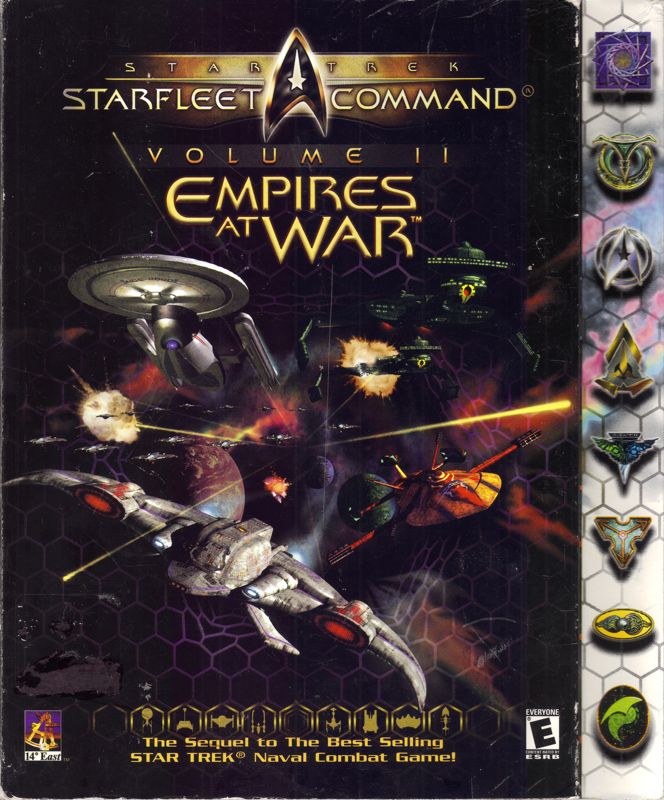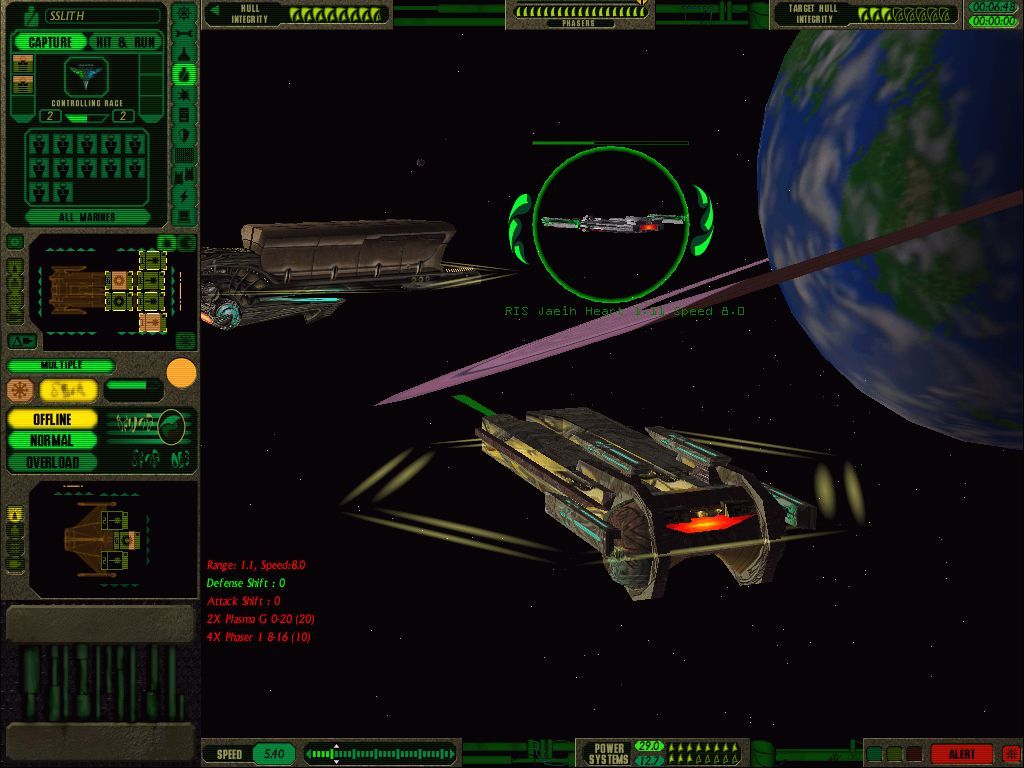Retro Replay Review
Gameplay
Star Trek: Starfleet Command Volume II – Empires at War builds on the intricate tactical foundation of its predecessor by introducing new factions, weapons, and strategic layers. Players can now command the imposing Interstellar Concordium (ISC) or wage war as the ferocious Mirak Star League, adding fresh tactical flavors to engagements. The inclusion of specialised carrier ships and fighter wings for non-Hydran races broadens fleet composition options, forcing commanders to rethink screening, escort, and strike roles in every skirmish.
(HEY YOU!! We hope you enjoy! We try not to run ads. So basically, this is a very expensive hobby running this site. Please consider joining us for updates, forums, and more. Network w/ us to make some cash or friends while retro gaming, and you can win some free retro games for posting. Okay, carry on 👍)
The revamped campaign map, rendered on a hex-based grid, offers a compelling blend of strategic decision-making and real-time combat. You’ll manage sector control, allocate resources to research new technologies like plasma torpedoes and advanced anti-missile defenses, and respond to dynamic threats generated by the Dynaverse engine. This persistent universe ensures that no two playthroughs feel identical, as shifting alliances and emergent conflicts keep the pressure high.
Combat remains the heart of the experience: seamless transitions from strategic map to real-time battles preserve immersion, and the refined control scheme—complete with customizable hotkeys and command macros—lets seasoned players execute complex orders with precision. Whether you’re plotting an ambush in nebula-shrouded sectors or spearheading a head-on assault against a Kzinti missile barrage, the depth of tactical options ensures every engagement challenges you to adapt.
Graphics
While Volume II retains the sprite-based 2D overhead perspective of the original, the developers have polished ship models and weapon effects to heighten visual clarity. Ships sport sharper textures and more distinctive silhouettes, making it easier to identify friend and foe during chaotic dogfights. Energy beams and explosion animations have received subtle upgrades, lending battles a more cinematic feel without sacrificing performance on modest hardware.
Sector maps display terrain features—asteroid fields, gas clouds, and gravitational anomalies—with improved detail, allowing you to use the environment tactically. Nebulae now exhibit colored particle effects that obscure sensor ranges, while asteroid clusters cast dynamic shadows for a more immersive battlefield. Though not a graphical showcase by modern standards, the game’s visual presentation is functional, clean, and supports intense strategic play.
The user interface benefits from thoughtful refinements: clearer unit icons, adjustable zoom levels, and context-sensitive tooltips help newcomers learn the ropes without drowning in numbers. Tactical readouts—showing shield strength, hull integrity, and weapon cooldown timers—are neatly arranged, enabling quick status checks amid the heat of battle. The result is a cohesive visual package that emphasizes gameplay clarity over flashy ornamentation.
Story
Empires at War thrusts players into a galaxy on the brink of upheaval. The enigmatic Organians re-emerge after their unexplained absence, accompanied by the expansionist ISC, whose mission to “pacify” major powers threatens to upend the fragile balance. This new storyline fosters intriguing diplomatic tensions: do you resist Organian edicts as a Federation admiral, or embrace ISC oversight as a Romulan commander seeking stability?
Meanwhile, the Mirak Star League’s arrival rekindles age-old rivalries with the Lyrans, injecting kinetic conflict into contested space. Each playable race enjoys unique narrative branches in the campaign—Federation officers scramble to fortify starbases, Klingon captains pursue honor through daring raids, and Gorn warlords vie for dominance using fearsome plasma torpedoes. The script, while not heavy on cinematic cutscenes, conveys these arcs effectively through mission briefings and inter-faction communiqués.
The Dynaverse-driven mission generator deepens the lore by spawning emergent storylines: random encounters with rogue ISC patrols, rescue missions for Organians persecuted by overzealous admirals, and covert operations to sabotage Mirak supply lines. This dynamic storytelling ensures your personal war story evolves organically, offering a rich narrative tapestry that complements the fixed campaign structure.
Overall Experience
Star Trek: Starfleet Command Volume II – Empires at War strikes a compelling balance between grand strategy and real-time tactics. Its expanded roster of playable races, coupled with the Dynaverse’s unpredictable mission generator, guarantees high replay value and varied strategic challenges. Dedicated fans of tactical fleet engagements will appreciate the nuanced interplay of ship roles, weapon specializations, and spatial tactics.
On the downside, newcomers may face a steep learning curve as they master the intricate command interface and myriad subsystem management. The game’s aging graphics and absence of modern conveniences—such as rollback netcode or in-engine cinematics—may deter players accustomed to contemporary releases. However, for those willing to invest time in understanding its mechanics, Empires at War delivers a deeply rewarding and immersive Star Trek wargaming experience.
Ultimately, if you crave a hardcore tactical simulation set in the Star Trek universe—complete with sprawling campaigns, emergent storylines, and richly varied ship arsenals—Empires at War remains a high-water mark for the genre. Its blend of strategic mapplay, real-time engagements, and narrative dynamism makes it a must-have for tactical strategists and Starfleet aficionados alike.
 Retro Replay Retro Replay gaming reviews, news, emulation, geek stuff and more!
Retro Replay Retro Replay gaming reviews, news, emulation, geek stuff and more!









Reviews
There are no reviews yet.